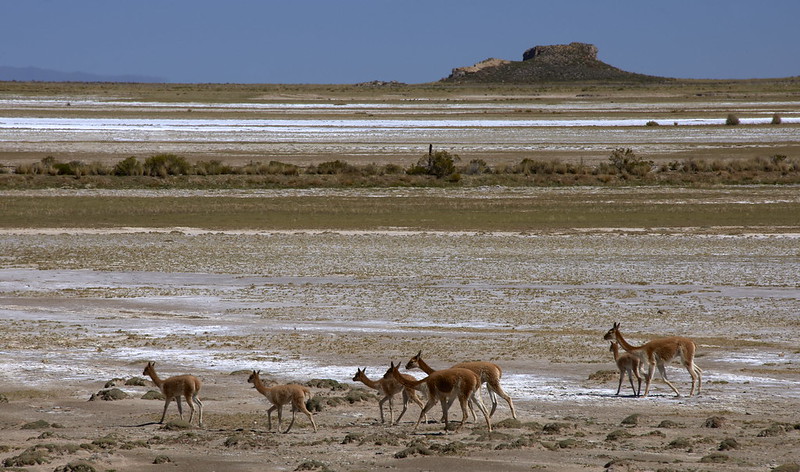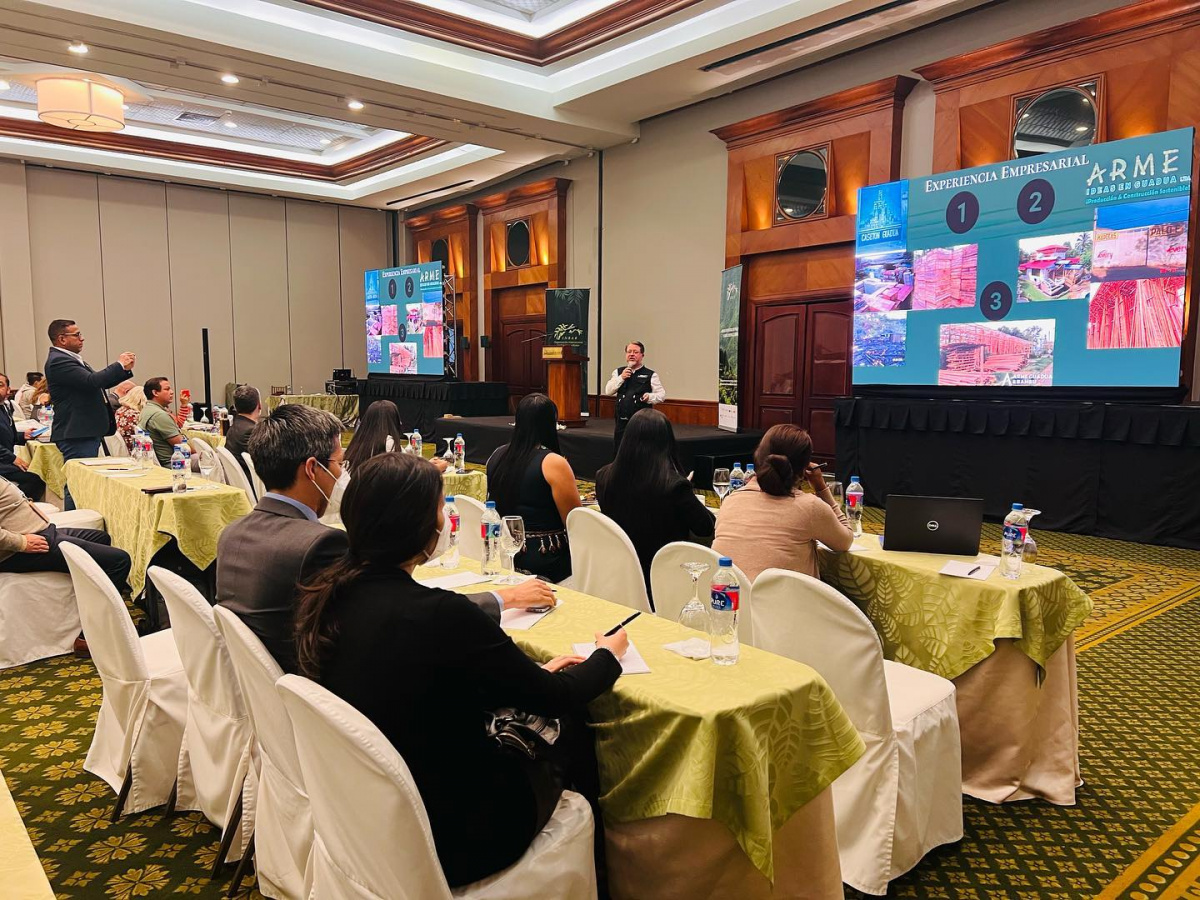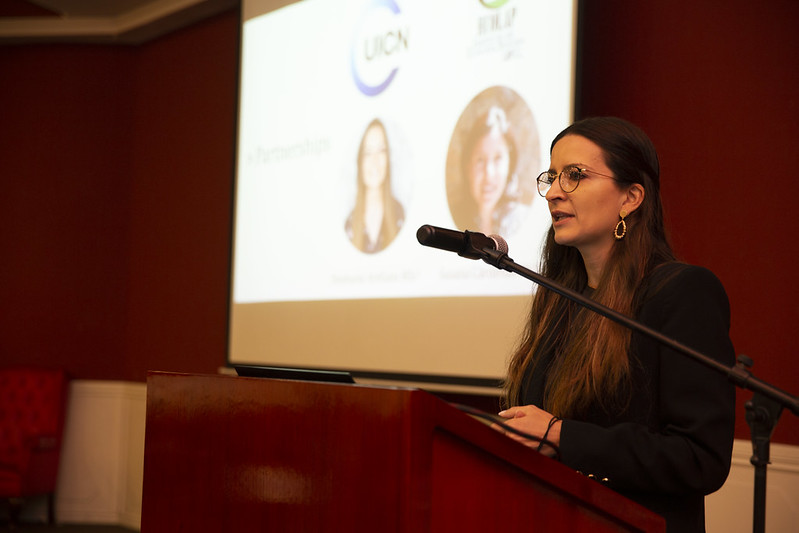Carbon-Neutrality in the Oil Industry: A Nexus Approach to Resource-Level Offsetting and Peat Carbon Conservation in Indonesia
CEESP News - by Christoph Weigl
A study conducted as part of an Imperial College London degree in collaboration with the Agricultural University of Bogor (IPB) proposes a resource-level offsetting scheme under which oil companies invest in the conservation of Indonesian peatlands to offset the carbon content of their petroleum products. These could eventually be marketed as carbon-neutral and reduce the climate footprint of oil-dependent industries. The scheme’s technical and practical feasibility as a business and carbon management strategy was assessed through stakeholder interviews with industry representatives of large multinational oil corporations, Indonesian government officials and peat carbon experts.
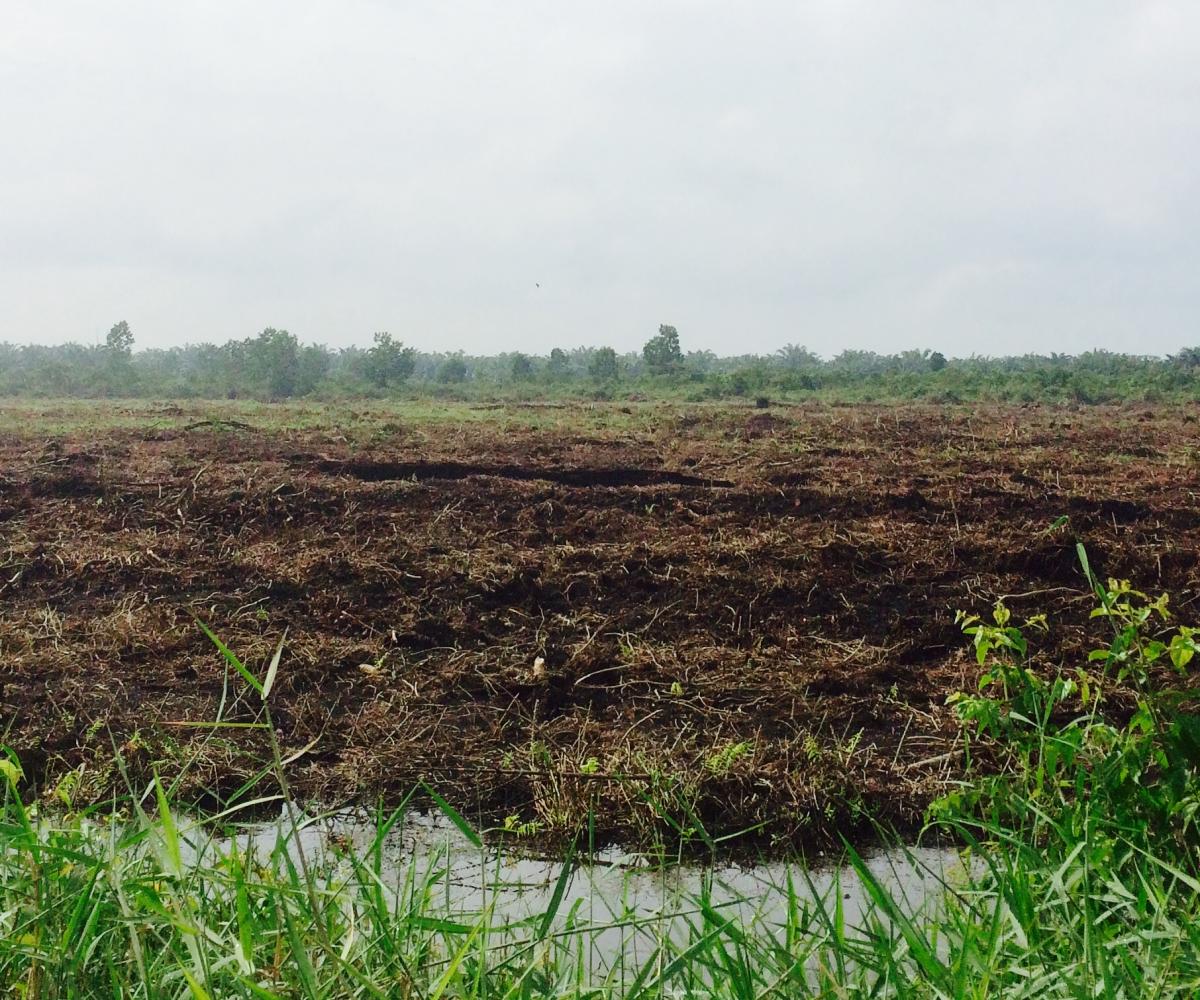
Photo: Christoph Weigl
Renewable energy sources and continual innovation in energy efficiency are the most promising strategies towards a low-carbon future. However, their realisation is often subject to high costs and, in the short-term, leaves industries and economies dependent on the consumption of fossil fuels. Moreover, despite their great potential, Carbon Capture and Storage (CCS) technologies do not yet provide cost-effective emissions abatement solutions. At the same time, natural carbon sinks are under increasing pressure from human influences. Mature forest ecosystems, such as tropical peatlands, are turned into major sources of emissions. In fact, combined emissions from converted and degraded peatlands in Indonesia alone regularly amount to up to 5% of annual global anthropogenic GHG emissions. While these emissions are catastrophic in their extent, their geographical concentration features a unique opportunity for focused climate change mitigation.
A study conducted as part of an Imperial College London degree in collaboration with the Agricultural University of Bogor (IPB) proposed a resource-level offsetting scheme under which oil companies invest in the conservation of Indonesian peatlands to offset the carbon content of their petroleum products. These could eventually be marketed as carbon-neutral and reduce the climate footprint of oil-dependent industries. The scheme’s technical and practical feasibility as a business and carbon management strategy was assessed through stakeholder interviews with industry representatives of large multinational oil corporations, Indonesian government officials and peat carbon experts.
The study found that while Indonesian peatlands can indeed provide cost-competitive emissions offsets, oil companies have not yet considered resource-level offsetting strategies in general. Given the scheme’s novelty, experts agreed that its implementation has the potential to generate valuable competitive advantages. It is especially the financial and organisational strength of multinational oil corporations that allows for its large-scale implementation and for economies of scale to be realised. Moreover, the research suggests that emissions offsetting already at the resource level is a particularly flexible approach to achieving emissions reductions in various industries. A wide range of customers can be supplied with carbon-neutral petroleum products, which results in a broad coverage of emissions in various industries and sectors.
Despite these advantages, it also became evident that oil companies generally seek emissions management solutions in the realm of engineering. Technological solutions are argued to better suit the industries’ capabilities and to have greater long-term abatement potentials. In this regard, investments in carbon offsets were partly perceived as a distraction of funds from necessary R&D efforts. Furthermore, industry stakeholders explained that R&D investments are also more sensible, regarding current uncertainties in international climate change policymaking. Indeed, at present, the proposed scheme could only be integrated into existing national regulatory emissions reductions systems, as no international system is yet in place under which it could be operated on a non-voluntary basis.
With regards to Indonesian peatlands, the research further suggests that in particular a lack of institutional capability and support and complex land ownership conditions in Indonesia impede the establishment of the proposed scheme. Moreover, forestry- and agriculture-based carbon offsets generally involve high risks of non-performance. This holds particularly true in light of aggravating climate change and increased forest disturbance. Also, methodological issues with respect to accounting for peat emissions were identified. In fact, the use of peatland offsets may only lead to cost-competitive advantages if achieved emissions reductions can be holistically accounted for. Until now, however, peat emissions are not only largely unaccounted for by Indonesia’s national emissions inventory, but also not sufficiently covered by existing offset certification methodologies. Especially peat fires are excluded from emissions accounting. Hence, considering their importance to overall peat emissions, the study argues that if they were included in offsetting claims, the use of peatland offsets is indeed a sensible approach for the proposed scheme.
Under this prerequisite, especially the restoration of degraded peatlands can provide the required emissions reductions. In Indonesia, degraded peatlands are widely available and the potential for avoiding peat fire emissions is substantial. In addition, compared to other land types, degraded peatlands are characterised by low land-use opportunity costs and also restoration costs are reasonably low. Lastly, their rehabilitation entails various opportunities for the engagement of local communities as well as the realisation of social and environmental co-benefits. Restored peatlands can be used as productive lands for low-impact food and timber cultivation and also air pollution from smoke-intensive peat fires can be avoided.
In conclusion, the study found that carbon-neutral petroleum products and fuels provide a cost-effective way to reduce the footprint of fossil-fuel dependent industries. The identified strengths and weaknesses of the scheme are contrasted against its opportunities and threats in Table 1 below. Ultimately, the study argues that by recognising the potential of resource-level offsetting approaches, oil companies can develop proactive carbon management strategies which can help to better position the industry for a low-carbon future and channel funds towards the protection of natural carbon sinks.
Table 1: SWOT analysis and corresponding implementation strategies for oil corporations
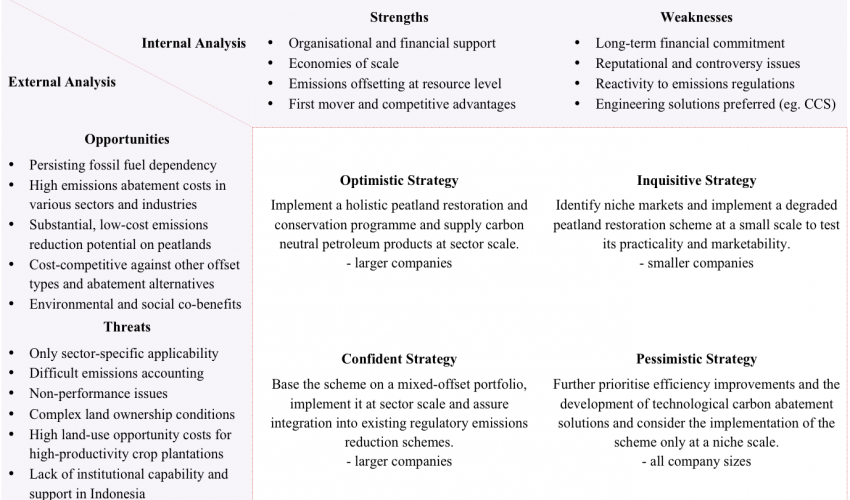 Photo: Christoph Weigl
Photo: Christoph Weigl
Reference: Weigl, C. (2016) Carbon-Neutrality in the Oil Industry: A Nexus Approach to Resource-Level Offsetting and Peat Carbon Conservation in Indonesia. M.Sc. Dissertation, Centre for Environmental Policy. London: Imperial College London.
Acknowledgements: This study was supervised by Professor Jose Furtado (Imperial College London) and advised by Professor Budi Setiawan (IPB)
Correspondence kindly to be directed to Christoph Weigl, Imperial College London, Centre for Environmental Policy, London SW7 2AZ, UK,
Email address: christoph.weigl15@imperial.ac.uk, Tel.: +43/66480747302
